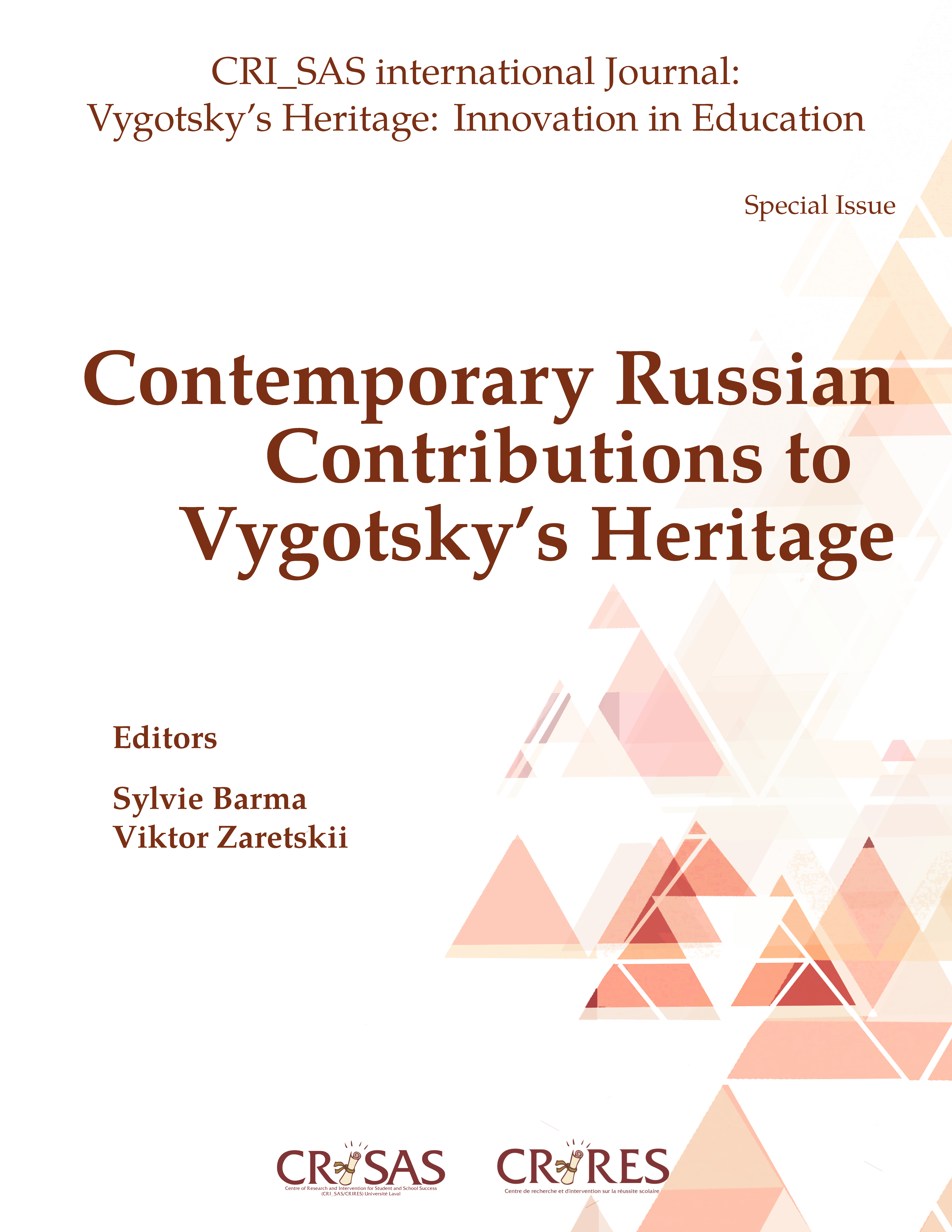New Methodological View of Vygotsky
DOI :
https://doi.org/10.51657/ric.v4i1.40994Mots-clés :
Vygotsky, Subject of psychology, Postnonclassical scienceRésumé
In order to see the true value of the cultural-historical psychology, one may need to view Vygotsky’s scholarly endeavor as translational motion, in the course of which earlier developments become natural constituents of the later ones. During the first years of his academic career, Vygotsky introduced a number of important assumptions that he developed later in his theory of verbal thinking, which he had no chance to finish: the subject of Psychology is the process of people’s interaction with their social environment; the driving force of the intrapsychic world’s development is self-development which is based on a contradiction between meaning and sense; the person who gives birth to meanings is a totally new creature, i.e. a totally new subject of Natural Science. Careful examination of Vygotsky’s ideas leads us to a number of assumptions that introduce drastic changes to our understanding of the subject of psychological research. Thus, Vygotsky’s cultural-historical psychology seems to be a system that contains a significant methodological potential, rather than just a scientific theory.
Références
Elkonin, D. B. (1989a). About the sources of non-classical psychology. In D. B. Elkonin(Ed.), Selected psychological works (pp. 475–478). Moscow: Pedagogy.
Elkonin, D. B. (1989b). Vygotsky today. In D. B. Elkonin (Ed.), Selected psychological works (pp. 469–475). Moscow: Pedagogy.
Leontiev, A. N. (1983). Image of the world. Selected Works in Psychology.
Stepin, V. S. (2000). Theoretical knowledge: Structure, historical evolution. Moscow: Progress-Tradition.
Téléchargements
Publié
Numéro
Rubrique
Licence
© Stanislav M. Morozov 2017

Cette œuvre est sous licence Creative Commons Attribution - Pas d'Utilisation Commerciale - Pas de Modification 4.0 International.

